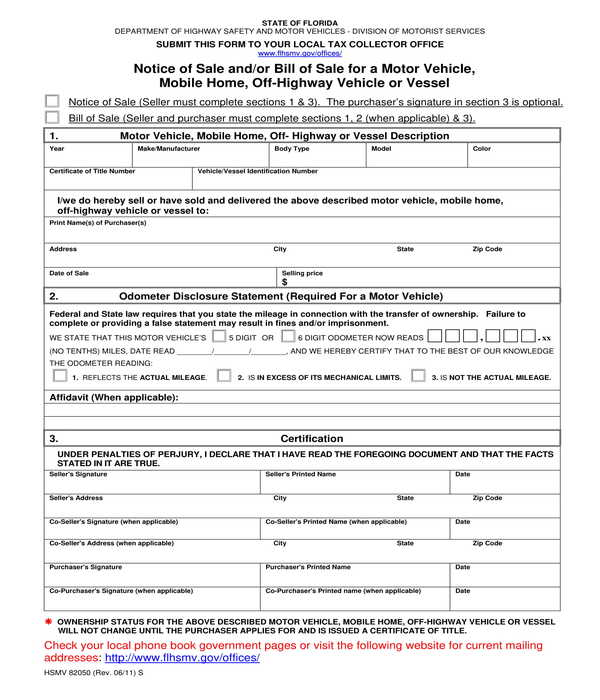Table of Content
Q. I am about to sell my home in New Jersey and I’m moving to another state, where I will rent. I expect a profit of $400,000 on the sale of my primary residence. You won’t need to worry about the so-called exit tax, which is a tax withholding meant to force out-of-state taxpayers to file a New Jersey return and pay tax due on a home sale, if any, he said. Once you sell your home in New Jersey and are leaving the state, you are technically considered a non-resident. You can then file Form A-3128 to claim an early refund after closing, along with proof of overpayment, he said. DeFelice said although the prepayment obligation is an inconvenience for a seller moving out of New Jersey, the tax is refunded or reduced as appropriate at the time of filing.
Unless a sale is exempted/excluded by the Sales and Use Tax Act, New Jersey imposes a tax of 6.625% upon the receipts from every retail sale of tangible personal property. Generally, the maintaining, servicing, or repairing of real property is taxable unless the service results in an exempt capital improvement. A repair service is a service which maintains the existing value of property. A maintenance service is a service which preserves the existing condition of property. A capital improvement is an installation of tangible personal property which results in an increase of the capital value of real property or a significant increase in the useful life of property.
Sale of a Residence
If you converted a rental property into your primary residence, your basis would be the lower of your original purchase price or the fair market value of the home on the date you converted its use. You will still increase the basis by any money spent on improvements. Based on all of this, the entire $100,000 gain would be subject to income tax for both federal and New Jersey tax purposes, Hook said. He said the state requires all real property owners to execute a special tax form that must be attached to all deeds upon the sale of the property. The seller/grantor must attach a copy of a completed W-7 TIN application form to the GIT/REP-1 form to be submitted with the deed for recording with the appropriate county clerk. Connect with our concierge team to get paired with a top agent that knows the ins and outs of your local transfer taxes — all for a low 1% listing fee.

If you purchase a product or register for an account through one of the links on our site, we may receive compensation. If you instead rent someplace in New Jersey after you sell the home, you would again look at Form GIT/REP3. He said if a New Jersey resident moves out of the state, you are considered a non-resident on or after the day of transfer.
Can I qualify for a partial capital gains tax exclusion?
This is where you declare your residency and claim exemption from the withholding tax, if eligible, she said. If you meet all these tests and you are married, the $400,000 is not taxable for federal or state purposes, Wolfe said. If you are single, $150,000 ($400, ,000) will be taxed to you by New Jersey at your marginal tax rate, she said.

Things become a bit more complex if you sell a home over $350,000. You're still expected to pay the $3.90 tax per $500 of value, up to the $350,000 mark. From there, you're taxed based on how many thousands of dollars over $350,000 your home sold for.
New Jersey Sales Tax and You: An Overview
With how complex New Jersey’s transfer tax regulations are, you’ll want an experienced real estate agent to guide you through the process. Our Clever Partner Agents are from the biggest real estate brokerages in the country and can help you get the most out of your transaction. There are lower rates offered to senior citizens, blind, and disabled applicants, which can be found here. In addition, buyers who purchase a home over $1,000,000 will be charged a 1% transfer tax fee. When such a seller eventually files his NJ tax return he is refunded the difference between what was withheld and what was owed. Even if there is no tax liability to New Jersey, an estimated state income tax may be withheld at the time of the closing.
A nonresident taxpayer is any taxpayer that does not meet the definition of a resident taxpayer. The form is completed and signed by the buyer, grantee, or authorized representative. The only exception occurs if the property is used as an investment or rental property, in which case the seller could deduct them as a work expense. They’ll work to get you the best deal possible, all for a low listing fee of 1%. What you save from using our service will more than cover your transfer tax fees.
How Do We Get a Transfer Fee That is Set Aside As a Non-Resident Fee?
On average, customers save $9,600 — more than enough to ease the burn of those transfer tax fees. Per the instructions from New Jersey Tax Guide “Buying or Selling a Home in New Jersey,”New Jersey residents who sell their homes and move out of New Jersey are considered non-residents for the purpose of the sale, Maye said. As the seller, you will have to pay a Realty Transfer fee , which is typically around 1%, Maye said. For example, if your home sells for $300,000 and your closing costs are 10% of the purchase price ($30,000), your net proceeds will be $270,000. Even if you can’t exclude all of your home sale profit, there are other scenarios where you may be able to partially lower your taxable profit. If you experienced any of the below life events, you may be able to get a partial exclusion, calculated based on the percent of the two years that you lived in the home.
The estimated Gross Income Tax payment must be included with the GIT/REP-1 form and the deed for recording with the appropriate county clerk. The county clerk forwards the form along with payment to the Division of Taxation. The 1040-ES on the GIT/REP-1 form and the seller's/grantor's payment must indicate the seller's/grantor's Social Security number in order for the payment to be credited to the proper taxpayer's account. A GIT/REP form is a Gross Income Tax form required to be recorded with a deed when real property is transferred or sold in New Jersey. For information about when to use a particular form (GIT/REP-1, GIT/REP-2, GIT/REP-3, GIT/REP-4, or GIT/REP-4a), please see GIT/REP forms. You can better calculate your estimated real estate transfer taxes using this online calculator or with the help of a qualified real estate agent.
Making sense of your New Jersey real estate transfer tax can be complicated without a real estate agent helping you. We can match you up with a local expert that will help you navigate taxes and ensure they're paid correctly. Most property taxes are paid in arrears, which means you pay after the fact for charges that are already accrued. And most property taxes are charged on a twice-yearly basis, so it’s likely you’ll have to pay a prorated portion of your six-month tax bill at closing.
Nonresident seller/grantor selling/transferring real property in New Jersey unless they qualify for one of the seller's assurances listed on the GIT/REP-3 form. While many real estate taxes can be deducted at the end of the year, transfer taxes in new jersey are not able to be deducted. Neither the seller or buyer can deduct transfer taxes on their taxes. Most states have a fixed state level tax rate for real estate transfer taxes, but New Jersey has a more complicated approach. New Jersey has different rates set depending on the total value of the home being sold. Filing this form at closing as a New Jersey resident exempts the seller from paying an estimated State of New Jersey income tax at closing, he said.
The above capital gains exclusions apply only to primary residences, so any second home or investment propertywill be subject to capital gains taxes, at any amount of profit. Many homeowners avoid capital gains taxes when selling their primary home, but there are stipulations. First, you must have lived in the home for at least two of the last five years of ownership. And the profits are taxable if they exceed $250,000 for single filers or $500,000 for joint/married filers. For this, the state requires the home’s seller to make an estimated income tax payment at the time of the settlement, Kiely said. A nonresident individual, estate, or trust is required to complete and sign the GIT/REP-1 or GIT/REP-2 form in order to record the deed unless the nonresident individual, estate, or trust meets one of the seller's assurances listed on the GIT/REP-3 form.
Such transactions are treated in the same way as any other transaction between individual parties. The forms can be obtained at one of our regional offices or at the link for Buying, Selling, or Transferring Real Property in New Jersey. The effective date for requiring the filing of the GIT/REP forms was August 1, 2004. If you sell a home worth $400,000 using Clever Real Estate, you'll save around $8,000 in listing commission fees. For instance, if your home sells for $400,000, you'd be taxed at $3.90 per $500 of value for the first $350,000 and would use the following guide to determine how the remaining $50,000 would be taxed. By choosing a Clever Real Estate agent, you'll pay just 1% listing commission (or $3K for homes under $350K) to sell your home.
Do I pay property tax when I sell my house?
That said, the support of a real estate attorney is absolutely invaluable. We also may spare you a sour deal by ensuring that the buyer’s terms are in alignment with the worth of your home. Some homeowners will owe capital gains tax on selling a home if they don’t qualify for an exclusion or special circumstance. Generally speaking, it’s easier to minimize or eliminate capital gains taxes on a primary home than a vacation or rental property. The frequently asked questions section about gross income tax on real property transfers on the Division of Taxation’s website says that if you qualify for the gain exclusion, you can be exempt from this withholding tax, Wolfe said.
The appropriate form is to be completed with the seller's/grantor's information being that of the estate. If there is a will, then the executors/beneficiaries or their authorized representative who is/are required to sign the deed also must sign the completed GIT/REP form. If there is no will, then the administrator of the estate must sign the form. Even if no gain is recognized by the seller/grantor, the minimum 2% of the total consideration stated on the deed must still be paid on or before the time of closing.

No comments:
Post a Comment